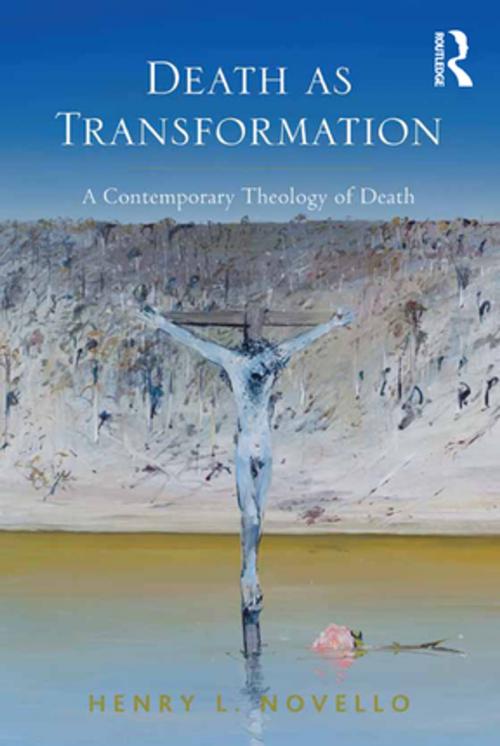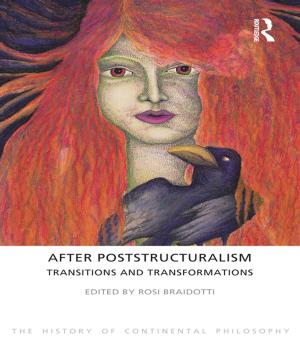Death as Transformation
A Contemporary Theology of Death
Nonfiction, Religion & Spirituality, Christianity, General Christianity| Author: | Henry L. Novello | ISBN: | 9781317154471 |
| Publisher: | Taylor and Francis | Publication: | May 13, 2016 |
| Imprint: | Routledge | Language: | English |
| Author: | Henry L. Novello |
| ISBN: | 9781317154471 |
| Publisher: | Taylor and Francis |
| Publication: | May 13, 2016 |
| Imprint: | Routledge |
| Language: | English |
A key tenet of Christian faith is that the crucifixion of Jesus Christ is a unique death by which the powers of death in the world have been conquered, so that Christian life in the Spirit is marked by the promise and hope of 'new life' already anticipated in the community of baptized believers. Notwithstanding this basic tenet regarding the Christian life as a participation in the redemptive death of Jesus Christ, theology in the past, as well as much contemporary theology, tends to assign no salvific significance to the event of our own death, focusing instead on death in negative terms as the wages of sin. This work is a significant retort to theological neglect, both Catholic and Protestant, of the positive and transformative aspect of our death when conceived as a dying into the redemptive death of Jesus Christ. The development of Henry L. Novello's proposed theology of death takes place in conversation with the pre-eminent contemporary contributors to this field of theological inquiry. By offering comprehensive critiques of Karl Rahner, Hans Urs von Balthasar, Karl Barth, Eberhard Jüngel and Jürgen Moltmann, Novello painstakingly pieces together a positive construal of death as salvific and transformative. What is especially distinctive about Novello's work is that he develops the idea of death as a sharing in the 'admirable exchange of natures' in the person of Jesus Christ, from which emerges his theory of resurrection at death for all. The reach of the work is extended by exploring some pastoral and liturgical implications of a theology of death conceived as the privileged moment for the actualization of God's grace in Jesus Christ, and thus being created anew in the power of the Spirit.
A key tenet of Christian faith is that the crucifixion of Jesus Christ is a unique death by which the powers of death in the world have been conquered, so that Christian life in the Spirit is marked by the promise and hope of 'new life' already anticipated in the community of baptized believers. Notwithstanding this basic tenet regarding the Christian life as a participation in the redemptive death of Jesus Christ, theology in the past, as well as much contemporary theology, tends to assign no salvific significance to the event of our own death, focusing instead on death in negative terms as the wages of sin. This work is a significant retort to theological neglect, both Catholic and Protestant, of the positive and transformative aspect of our death when conceived as a dying into the redemptive death of Jesus Christ. The development of Henry L. Novello's proposed theology of death takes place in conversation with the pre-eminent contemporary contributors to this field of theological inquiry. By offering comprehensive critiques of Karl Rahner, Hans Urs von Balthasar, Karl Barth, Eberhard Jüngel and Jürgen Moltmann, Novello painstakingly pieces together a positive construal of death as salvific and transformative. What is especially distinctive about Novello's work is that he develops the idea of death as a sharing in the 'admirable exchange of natures' in the person of Jesus Christ, from which emerges his theory of resurrection at death for all. The reach of the work is extended by exploring some pastoral and liturgical implications of a theology of death conceived as the privileged moment for the actualization of God's grace in Jesus Christ, and thus being created anew in the power of the Spirit.















